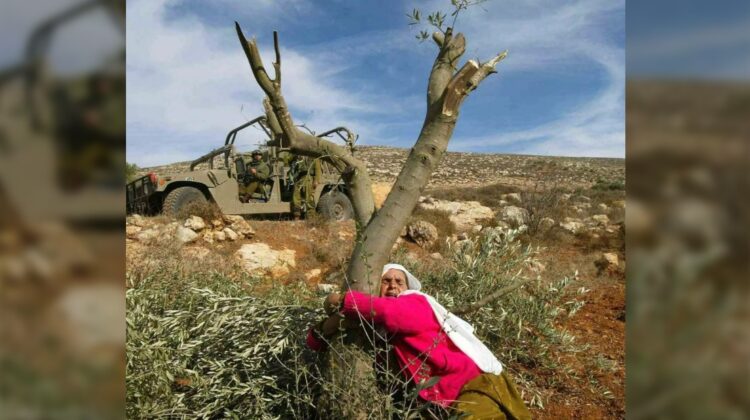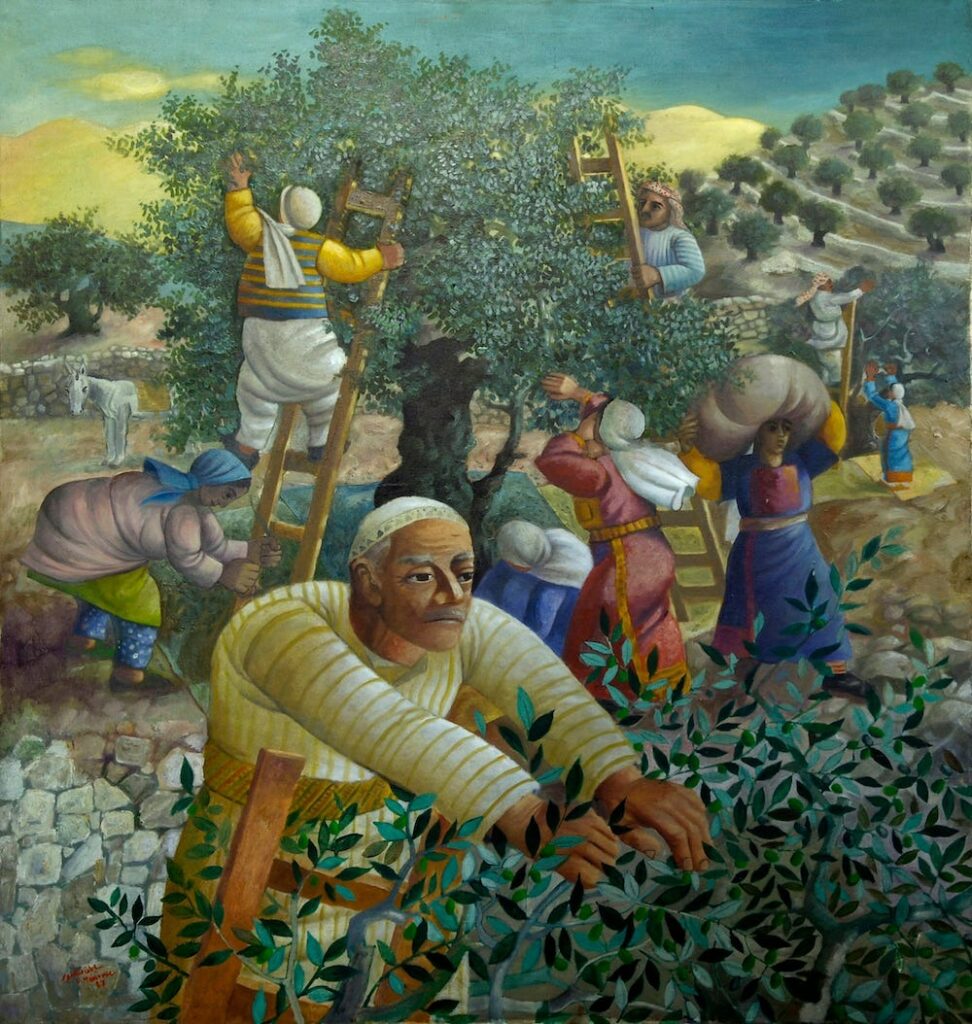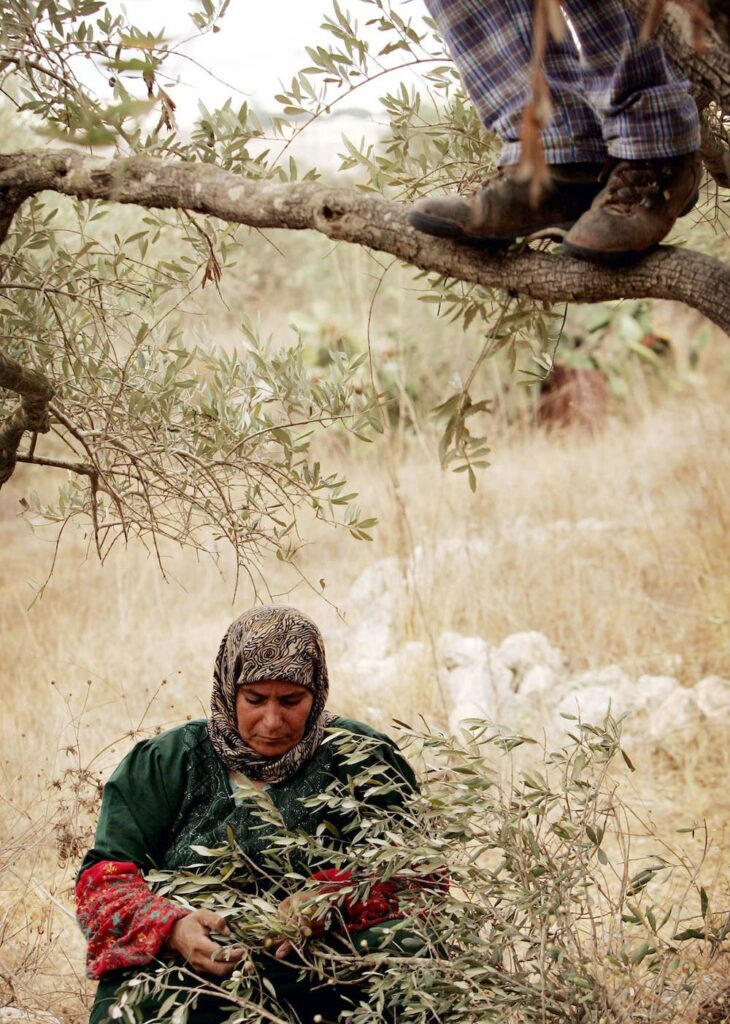
In the cradle of a semi-arid climate, where the air carries tales of centuries past, thin olive tree branches adorned with long, tapering leaves stretch toward the heavens. Laden with plump green olives, the branches gracefully bow, awaiting the impending harvest. As the season unfolds, a gentle shake of a branch sends olives cascading into waiting baskets with soft thuds—a timeless ritual in Palestine.
The olive, a symbol of endurance and continuity, has woven itself into the fabric of Palestinian identity. With roots reaching deep into the soil of a land marked by strife, the olive tree stands not merely as an agricultural marvel but as a testament to resilience—a living emblem of the indomitable spirit of the Palestinian people.

The process of transforming olives into oil, an age-old practice, follows a rhythm unchanged by time. Once crushed to create a paste, the olives journey through stone crushers or modern hammer mills and grinders. An olive press then extracts the oil from the paste, a simple yet profound process that has sustained life in Palestine for millennia.
Thriving in the basin around the Mediterranean Sea, Palestine provides an ideal cradle for olive trees. With their deep roots preventing soil erosion and enabling survival with minimal water, these trees have anchored themselves in the Palestinian landscape. They bear witness to a history of droughts, hardships, and unyielding hope.
Beyond their agricultural significance, olive trees and their branches have long stood as symbols of peace across diverse cultures. The act of “extending an olive branch” signifies a desire for harmony, a gesture rooted in the tree’s slow growth, reflecting peacetime patience and perseverance. In the paradoxical reality of Palestine, where olive oil is a vital export from a land often devoid of peace, planting olive trees becomes a profound act of defiance and hope amid violence and political turmoil.

Palestinian olive oil, revered for its rich taste and quality, not only meets local needs but extends its reach to international markets, contributing significantly to the Palestinian economy. The city of Nablus, renowned for traditional olive oil soap, intertwines economic activity with cultural heritage, offering a product crafted through centuries-old practices.
Yet, against this backdrop of resilience, the olive trees face a threat as profound as their symbolism—the Israeli occupation. Since the Nakba of 1948, Palestinians have endured displacement and systematic abuses under Israeli rule. A distressing manifestation of this occupation has been the deliberate destruction of olive trees by Israeli forces and settlers. Centuries-old trees, deeply rooted in Palestinian history, have been uprooted, echoing a brutal erasure of heritage and connection to the land.
This campaign of destruction, often justified as security measures or for construction purposes, has far-reaching socio-economic and emotional repercussions. Approximately 45 percent of agricultural land was dedicated to olive trees, sustaining around 100,000 families and constituting 25 percent of all income. The intentional uprooting by the Israeli army seeks to cripple the Palestinian economy, transforming each fallen tree into a poignant symbol of loss and dispossession.

The olive trees of Palestine transcend their botanical existence. They are silent witnesses to history, repositories of stories, and symbols of struggles and aspirations. In the face of adversity, these trees embody the essence of Palestine—resilience, resistance, and unwavering hope. The challenges faced by the Palestinian olive industry are formidable, but the deep roots of the olive tree, akin to the spirit of the Palestinian people, stand unyielding.

Leave a Reply